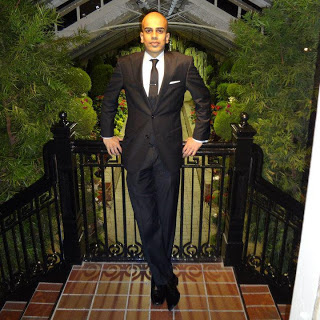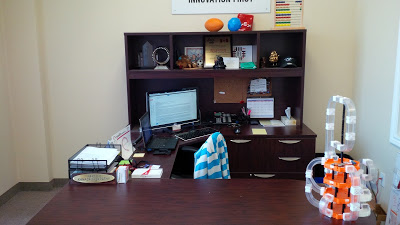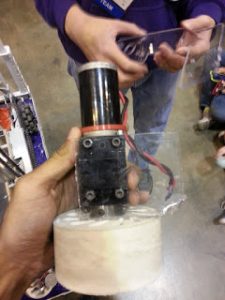We have been on a short hiatus but we’re back with a bang.
Today we have one of the most well known mentors/MCs/VEX Game Designers/Simbots in the robotics community, Karthik Kanagasabapathy. He was a founding member of FRC#188 – Woburn Robotics, the 1st Canadian FRC team, and from there his passion for robotics competition grew. Karthik’s accomplishments need little introduction. He has been essential in developing FRC #1114 into a World Champion and Championship Chairman’s Award winning team. He is the Chairman of the VRC Game Design Committee and helps spread competitive robotics to thousands of teams around the world each year. He’s extremely active in the community, answering all of the VEX Q&A each year and having a consistent presence on Chiefdelphi. His strategy presentations the past few years have been standing room only events at FRC Championship. In this interview he tells you how he was brought into 1114, shares the best advice he’s ever received, and offers loads of advice for students and mentors alike.
[Responses from August 16, 2013]
Name: Karthik Kanagasabapathy
CD Username: Karthik
Current Gig/Job: Regional Manager & Chariman of the VEX Robotics Game Design Committee, Innovation First Intentional – Canada, Inc.
Alma Mater/Degree: University of Waterloo, Pure Mathematics
Current Team(s): Team 1114 – Simbotics (2004-Present)
Former Team(s): Team 188 – Woburn Robotics (1998-1999, one of many founding members of the first ever Canadian FRC team)
Location: Toronto, Ontario, Canada
Hobbies: Sports, Analytics, Fashion, City Life, Reading
I work for Innovation First International (IFI) in our Canadian office. Here I oversee all VEX Robotics operations and doings in Canada. I have other responsibilities including supporting IFI’s other businesses in Canada, Rack Solutions and Hexbug. The highlight of my job is being the Chairman of Game Design Committees for both the VEX Robotics Competition and the new VEX IQ Challenge. I’m responsible for coordinating and participating in the development of both games, and I am also the primary author of both game manuals. In a nutshell, I get to design competition robotics games with a committee of brilliant people (Paul Copioli, John V-Neun, Tony Norman, Dan Larochelle, Bob Mimlitch, Rich Kressly, Jason Morrella, Mike Soukup, and more!), and then write the rules that are going to be examined and dissected by upwards of hundreds of thousands of students worldwide!
One of these days I’m going to write a novel about my FIRST experiences on 1114. I’m not sure anyone would want to read it, but there are so many stories I’d love to get down on paper. Of course at this exact moment, I’m drawing a blank. All the ones I can think of are all probably a bit too long for this article (i.e. The formation of our 2008 World Championship Alliance, The Einstein 2012 Fiasco, etc.) Oh, wait, here’s a good one. It’s the story of how I joined Team 1114. During the 2003 season, I was in the midst of a pretty busy semester at the University of Waterloo. So instead of mentoring a team, I did what a responsible university student should do, and took the season off from FIRST. (This may have been the only time I was ever described as a “responsible university student”, but let’s roll with it. In all seriousness, this is important advice for any young mentor. School always comes first. You have your entire life to be an FRC mentor, but only 3-5 years of undergrad. Your GPA will stick with you for a looooong time, especially if you’re particularly ambitious. Don’t mess it up by spending too much time mentoring/running a team). I went to the 2003 Canadian Regional (now the Greater Toronto Regional West) as a spectator. I didn’t even have time commit to being a volunteer, so I randomly grabbed a seat in the stands and watched matches. While watching, I was kind of talking to myself, analyzing the various teams on the field. There was one rookie team that I was particularly captivated by. They had a drivetrain with steerable wheel modules, and were the only team at the event who could stack bins, and they were stacking easily, like way too easily. It was clear that there was some real engineering talent on this team. It was the most impressive engineered rookie robot that I had ever seen. On the other hand, as most veterans of 2003 know, stacking was not the optimal strategy in Stack Attack, as it was very hard to do, and very easy to undo. The effort to reward ratio was completely out of whack. The best teams in FIRST that year specialized in knocking over stacks. I started thinking aloud about what this team could have accomplished with a different strategic design, one that focused on game tasks that were more optimized towards the match objectives. Well, the random person that I was sitting beside was interested in what I had to say, so we started up a conversation about this team. Turns out his name was Stephen Rourke, Director of Engineering at GM St. Catharine’s, and he was founding mentor of Team 1114. The team that I was analyzing on the field? You guessed it, Team 1114. We talked for a while that weekend, and by the end of it he said, “If you ever want a job at GM, just let me know.” A few weeks later I got in contact with him when I was looking for an internship, and he emailed me saying “How are your project management skills? Would you like to run Team 1114?”. And that’s how I ended up being a Simbot.
BlackBerry is struggling to stay afloat, considering the Z10 is such a useful
device. I’m actually considering going out and buying three right now, just so I
can still keep using them if BlackBerry gets out of the Smartphone hardware
business. I’m a big fan of products such as Google Drive and Dropbox, which allow for seamless collaboration by multiple people from multiple sites. This is especially important to 1114, where almost all of our mentors live at least one hour from the build site and have very busy day jobs. Other things that are a must for me are red pens, 0.5mm mechanical pencils, compact notebooks/pads, and a high quality white rubber eraser. (Seriously, I detest people who do math with fat pencils, it just looks awful.) Oh, and sticky notes.
Work from 9:30 to 5:30, nap from 6:00 to 8:00, then dive into FIRST stuff from the rest of the evening/night. Friday nights after work I head down to St. Catharine’s, where we work in the shop until about 1:00am. The mentors then gather at the team clubhouse and discuss the latest happenings for an hour or two. Saturday morning we head to the shop at 10:00am and work until 1:00am, and the process repeats. On Sundays I call it a night at 6:00pm-ish and head back to Toronto. The biggest task we have on Sundays is making sure everyone has a plan for what needs to be done during the week, especially the students, since they work fairly independently of the mentors during the week.
What everyday thing are you better at than anyone else?
pretty good at a lot things (although I’m certain others would disagree)…fast thinking, analytic problem solving, recognizing patterns, reading people’s emotions, but I would never make the claim that I’m better than everyone else at any of these. There are too many people in this world to ever be certain of something like that.
On the other hand, I probably could have just answered this question with “Looking good. Being charming” (the
aforementioned others would have probably said “Losing his hair. Being
delusional.”).
What’s the best advice you’ve ever received?
Anything else you want people to know about you?
If you have any questions for me, feel free to reach out to me on Twitter (@kkanagas) or on Facebook (karthik.kanagasabapathy).




